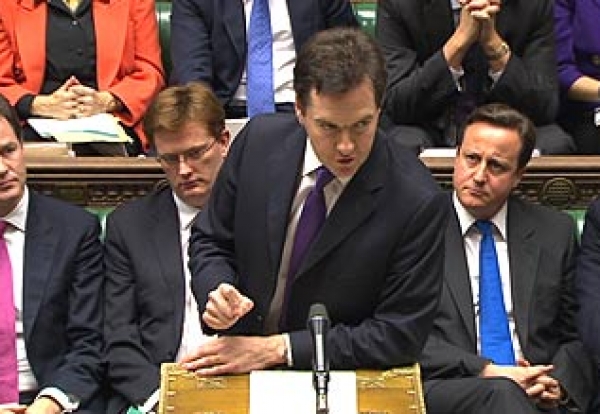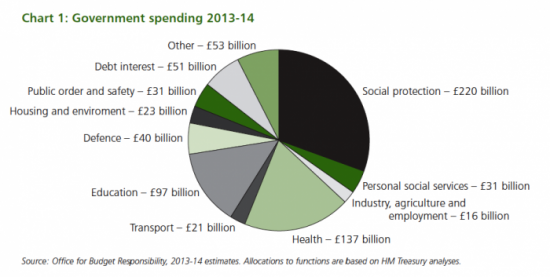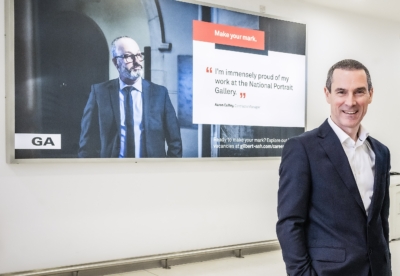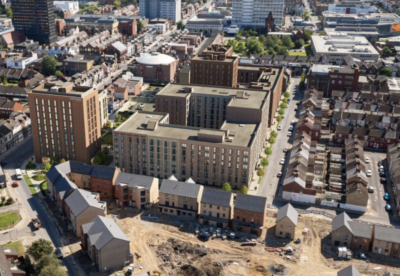The £3.5bn shared equity scheme will see the Government lend up to 20% of the cost of a new home to potential buyers currently struggling to secure a deposit and mortgage.
Buyers will have to raise a deposit of 5% before the Government helps out with interest-free loans of up to 20% on homes worth less than £600,000.
The scheme will be open to all buyers and a parallel £130bn mortgage guarantee scheme will help current homeowners looking to climb the property ladder.
He also released an extra £225m for the affordable homes programme being run by the Homes and Communities Agency. The agency now hopes to deliver up to 30,000 new affordable homes, underpinned by the Government’s £10bn guarantee scheme.
The funding will run until the end of 2016/17 and the HCA’s existing bidding round will be extended to the 21 May
An additional £800m for Built to Rent on top of the £200m unveiled last September will be released. This recognises strong demand for the HCA’s existing funding programme.
Investment will run until the end of 2015/16. The HCA’s Build to Rent programme is part of the Government’s response to the Montague Report and recognises that high quality, well managed homes for rent will play a significant part in meeting the country’s housing needs.
Richard Threlfall, KPMG’s Head of Infrastructure, Building and Construction said: “The Chancellor’s ‘Help to Buy’ scheme looks like the perfect “get out of jail” card.
“It’s a bold move, perhaps a desperate one, but one that will be undeniably welcome by the beleaguered construction industry.
“The Government has finally recognised that housing might offer the fastest acting pain relief for our economic woes and, perhaps despairing of local authorities to be proactive in supporting new house building, has decided to focus stimulus on demand.
“By opening the scheme to all buyers of new-build houses up to £600,000 in value, the Chancellor has thrown the UK house building industry a new lifeline.
“Ultimately, the construction industry and all trades that support construction of new houses in the UK will benefit from the new scheme.”
The Chancellor also confirmed an annual £3bn increase in infrastructure spending from 2015/16 – worth up to £15bn by the end of the next Parliament.
The plans will be funded by a switch from current to capital spending as Whitehall departments face further spending cuts and a renewed efficiency drive.
Osborne said: “We need to provide the economy with the infrastructure it needs.
“We’ve switched billions of pounds from current to capital spending. By using our extra savings we will boost our infrastructure spending by £3bn from 2015/16.”
Duncan Symonds, UK Head of Infrastructure at global consultancy WSP, said: “It’s disappointing that the Chancellor’s recognition of infrastructure as the ‘economic arteries’ of this country wasn’t backed up by more detail on the ‘how’ and ‘when’ they will be unblocked.
“£15bn extra funding is a welcome injection but it is realistically a small contribution to the £50bn needed by treasury’s own estimation, and most importantly, it will be futile if not backed by clear commitment to the programme, more detail on the delivery and support from the private market – so far not readily forthcoming.
“Lord Deighton’s role in the delivery of projects is therefore very good news, as is the increased use of independent advisors.
“There also needs to be recognition that while the big red tape projects are important, the smaller, less sexy projects, like flood defences, electrification and maintenance and repair programmes are equally important and in some cases can have more immediate impact on the economy, creating jobs and building asset value.”
Osborne also announced a cut to Corporation Tax which will see it drop to 20% by April 2015.
Contractors will also benefit from a new employment allowance to cut national insurance bills by £2,000 for every firm while 450,000 small firms will pay no employer national insurance at all.















 (300 x 250 px).jpg)



































.gif)





